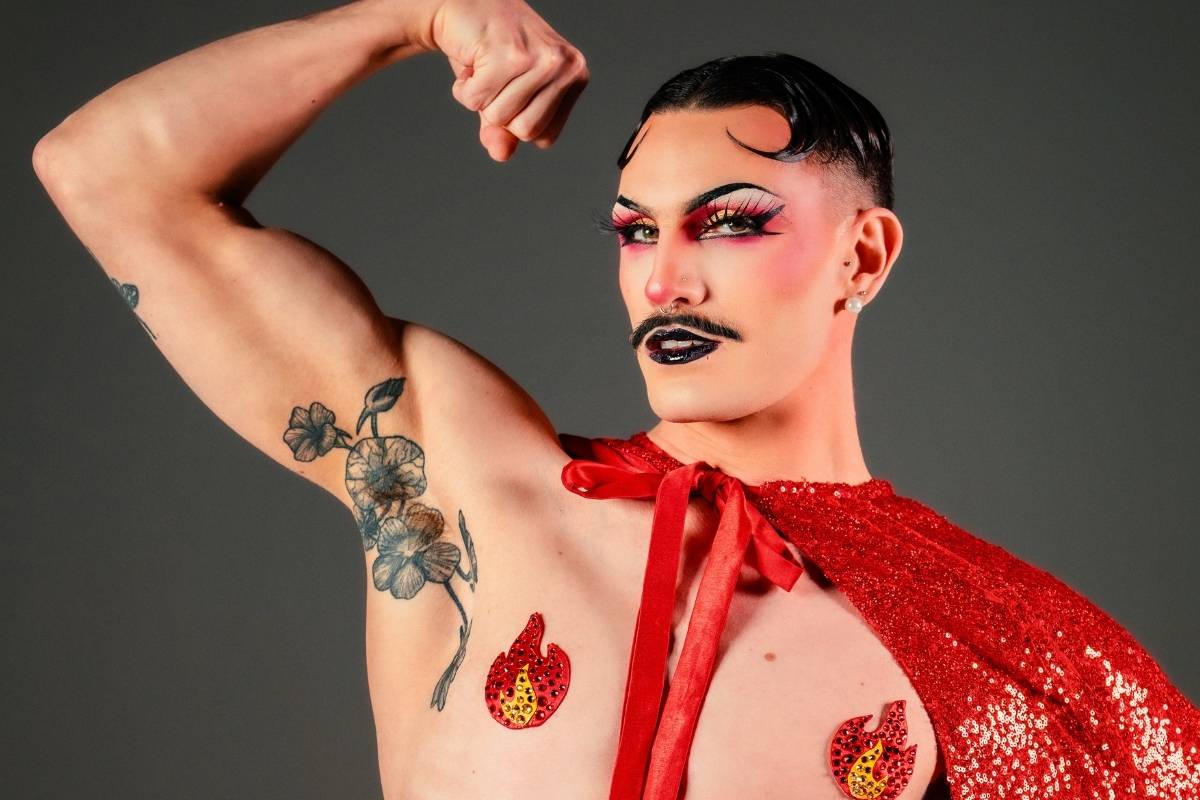Grace has spent more than 15 years clocking up tours, both alone in headline gigs and with legends of the stage like Billy Bragg and Hannah Gadsby. She's made her mark in many ways, leaving impressions with her music, her messaging, her unapologetic queerness, and passion for people and for the political.
She's only just recently been here, on tour with The Guilty Feminist, but it seems Grace can't get enough of the Aussies!
Grace will tour the country later this month in celebration of her recent album 'Build Something Better' – and the shows promise to not just be a night of live music. . . But a reason to come together and celebrate the power of folk music to speak to and for the people.
Before she takes her personal yet political musical stylings on the road, Grace sits down with us to chat.
For those who somehow may not have come across your work – how would you describe yourself as a musician?
I’d say I’m a folk singer with a big dose of political anger and hopefully a healthy amount of humour too. My music is about telling stories – sometimes mine, sometimes other people’s – but always with the aim of making people feel something, whether that’s a sense of solidarity, anger, or hope. I like to think of myself as part of the long tradition of protest singers, using music as a tool for change.
You released your most recent album ‘Build Something Better’ earlier this year. Tell us a bit about that.
‘Build Something Better’ is really a product of the times we’re living in. It’s full of songs that came out of frustration with the state of the world but also a determination to find some hope and to keep fighting. The album is about resilience and the belief that, even in the darkest times, we have the power to create something better if we come together and refuse to give up.
Going into putting it together, was there anything you definitely wanted to cover and talk about?
Definitely. I knew I wanted to tackle the big issues – social justice, inequality, the climate crisis – because those are the things that keep me up at night. But I also wanted to talk about love, community, and the small acts of kindness that keep us going. I wanted the album to be a balance of rage and hope because that’s what life feels like right now.
You’re hitting our stages from late September, and you were recently here as part of The Guilty Feminist tour. What do you love most about Aussie audiences?
Aussie audiences are amazing – they’re just so up for it! They’ve got this incredible energy and they’re really open-minded, which makes playing for them such a joy. I love that they’re passionate about the music but also really engaged with the messages in the songs. Plus, they know how to have a good time, which makes every gig feel like a celebration.
The shows will be ‘a rallying cry for change, an opportunity for collective experience’. What sorts of things go into making your live sets ‘more than just a series of concerts’?
For me, it’s all about creating a space where people can come together and feel like they’re part of something bigger. I try to make my gigs as interactive as possible – I want the audience to feel like they’re not just watching a show, but that they’re involved in it. That means lots of sing-alongs, lots of talking about what’s going on in the world, and trying to make every show feel like a conversation between me and the audience.
Who do you make music for?
I make music for the people who feel like they don’t have a voice, for the underdogs, for the people who are pissed off and need an outlet. My songs are for anyone who’s ever felt marginalised, overlooked, or like they don’t fit in. But they’re also for people who want to change the world, who believe in something better, and who are willing to fight for it.
Why is music such an effective tool for communication?
Music has this incredible ability to cut through all the noise and get straight to the heart of things. It speaks to people on an emotional level in a way that words alone sometimes can’t. A song can make you feel understood, it can unite people, and it can inspire action. There’s something really powerful about standing in a room full of people all singing the same words – it’s a reminder that we’re not alone in what we’re going through.
And following on from that. . . What would you say was the moment when you realised songs could be more than just songs?
I think it was when I first started playing at protests and rallies. Seeing how a song could galvanise a crowd, could give people strength and bring them together – that was when I realised that music could be more than just entertainment. It can be a tool for resistance, for solidarity, and for change. That’s when I knew this was what I wanted to do.
When people leave your live gigs, you want them to feel. . .
I want them to feel fired up, like they’ve got the energy to take on the world. I want them to feel less alone, like they’re part of a community that’s going to keep fighting for what’s right. And I want them to feel hopeful, because even though things can feel pretty bleak, I really believe that when we come together, we can make a difference.
Grace Petrie 2024 Australia Tour
25 September – The Rechabite (Perth)
26 September – Trinity Sessions (Adelaide)
27 September – The Altar (Hobart)
2 October – Corner Hotel (Melbourne)
3 October – Ainslie Arts Centre Main Hall (Canberra)
4 October – Marrickville Bowlo (Sydney)
5-6 October – Dashville (Lower Belford)






